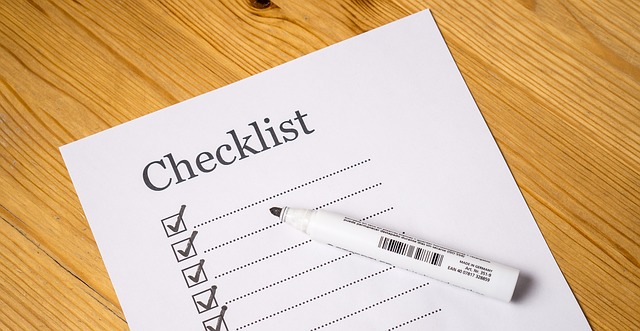TALENTVIS will not solicit fees from job applicants in any form / condition. View more
小心Line詐騙! 請與Talentvis Taiwan官方聯繫查證 詳情
Job Seekers Guide: Dos and Don'ts for a Successful Job Interview
by Emma • Jum, 04 Okt 2019 06:48PG

"A job interview is not a test of your knowledge but your ability to use it at the right time." – Anonymous
The purpose of a job interview is to showcase your skills in front of prospective employers and demonstrate how your skills benefit the company. It also gives you an opportunity to assess whether your qualifications and career ambitions do align with the position or not. From the candidate's point of view, an interview is a medium where they can determine if the company’s vision and culture do align with their career goals or not.
Owing to those reasons, you cannot come unprepared to a job interview. Especially if it is an interview for your dream job, coming without enough preparation could hamper the interview session and ruin your chance of getting employed. Typically, employers will not only concern on candidate’s experience, education, and skill. These are important but employers’ attention will be focused more on the unexpected behaviour and knowledge about the company and the job itself. They also pay great attentiveness on your personal life, strengths, and how you deliver the answers.
See also: Be a Graceful Applicant: How to Drop Out of a Job Interview
So, there is no reason to attend an interview without thorough research and preparation. To help you have the best interview experience, here are the dos and don’ts guide you must follow.
DO
- Prepare answers for standard questions such as why should we hire you? or salary negotiation questions. Practising prepared answer is recommended but do speak naturally during the interview.
- Do your homework like researching the employer information and preparing insightful questions such as what is a typical day/month in this job? How long did the last employee stay in this job?
- Bring your business card and a copy of relevant documents
- Project confidently in body language (eye-content, sitting position, smile)
- Arrive in time at least 10 or 15 minutes early to show your respect for the opportunity
- Turn off your smartphone and any interrupting devices
- Excuse yourself to the restroom BEFORE the interview. You want to be as comfortable as possible and it is embarrassing to interrupt the interview
- Make sure you address the interviewer's name right and mention it a few times to show friendliness
- Bring notes of prepared questions and a pen to write any necessary information such as interviewer’s email address or phone number
- Send thank-you notes after the interview is over to show your appreciation
- Make sure you show up in the best condition possible. For example, make sure your hair is in place and conservative, trim your nails, pay attention to your scent – for women, don’t use too strong perfume and men with intense colognes. This can destroy the interview atmosphere. Moderation is recommended here.
DON’T
- Project negative body language such as crossing arms, slouching, staring or feeble impression
- Arrive late or too early. While arriving late shows bad message to an interviewer, arriving too early will also give a bad impression and make interviewing team nervous.
- Ask about background check or drug test. It will make you look like you have something to hide.
- Joke too much. Wisecracks and laughter can come later. Show that you are seriously taking the chance.
- Be expensive in answering questions by giving one or two words for an answer. Recruiter is trying to get to know you.
- Dominate and interrupt the conversation. Wait until the interviewer stop talking.
- Use slang language or profanity even if the recruiter does. It cannot possibly help your image.
- Use the interviewer’s first name unless invited to do so. It can be considered rude.
- Chatter while interviewer is reviewing your resume and do not mumble
- Criticise past employer. If it is a bad situation with your previous employer, you can mention it but do not harp on it. Be objective instead of complaining or bad mounting.
- Look at the watch. This tends to hurry things along. Let the interviewer set the pace.
- Say, "Will I get the job? Or Can I have the job?" as it pushes recruiter and they won’t like it. Rather, you can say "I hope you can consider me as a candidate for the job" or "I am really interested in the job."
- Talk about salary until later in the hiring process or until the recruiter brings it up.
Next read: 7 Must-Have Things in Your LinkedIn Profile
Recommended for you
External Pay Equity: Retain Your Top Talents with Competitive Benefits
External pay equity matters because it ensures fair pay practices. Giving employees an up-to-date, competitive salary makes your company attractive and able to retain top talent.
Kha, 04 Dis 2025 07:12PG

Decide the Best Outsourcing Payroll Service for Your Business
Choosing the suitable outsourcing payroll service for your business can be a game-changer for your business operation. It’s effective, error-free, and allows you to focus more on the main business.
Kha, 04 Sep 2025 10:09PG

Stay Motivated While being Unemployed: 5 Inspiring Tips
Job hunting all day, every day, when you are unemployed, is prone to stress and burnout. You might not even land your next job for a long time. Here are several things to do to stay motivated when you are unemployed.
Rab, 16 Jul 2025 07:07PG
SUBSCRIBE TO OUR NEWSLETTER
Keep up with our latest jobs notifications, news, and events. No spam, we promise.